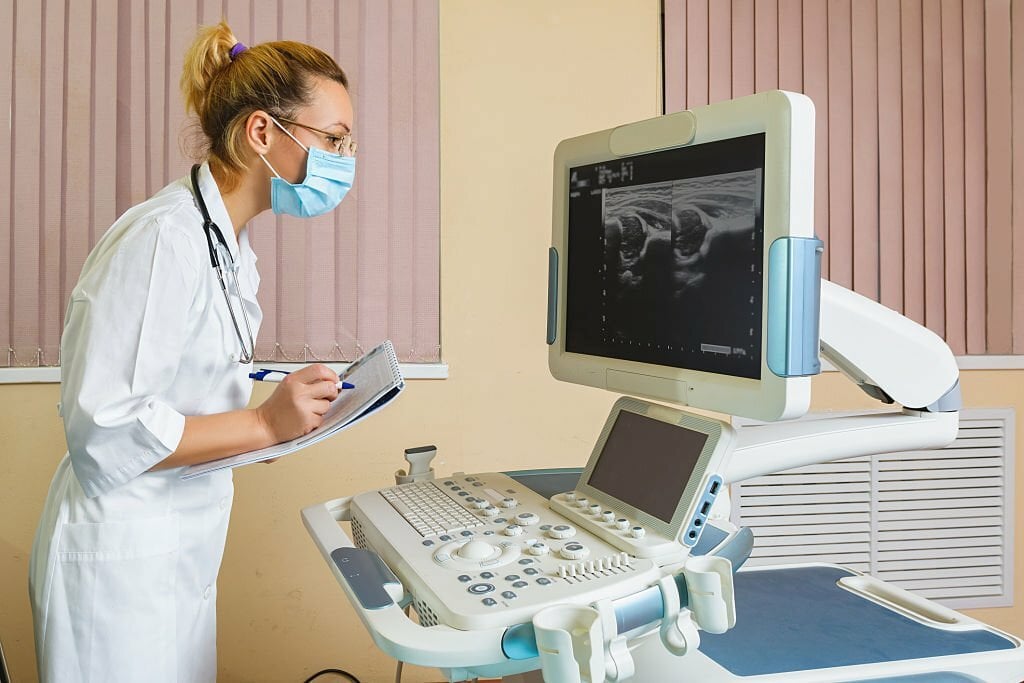Is Medical Sonographer a Good Job? Pros and Cons

Are you considering a career as a medical sonographer? This blog post will explore the pros and cons of pursuing a career in this field. We will discuss what a medical sonographer does, the skills and qualifications needed, the career outlook, and factors to consider before making a decision. Let's dive in!
Career Outlook for Medical Sonographer
As mentioned earlier, the career outlook for medical sonographers is promising. The demand for diagnostic imaging services, including ultrasound, is expected to increase as the population ages and healthcare providers rely more on imaging for patient care. This growth, coupled with advancements in technology, will drive the need for skilled medical sonographers.
Factors to consider before deciding on a career as a Medical Sonographer
Before pursuing a career as a medical sonographer, there are several factors to consider:
-
Education and Training: Becoming a medical sonographer requires completing an accredited program and obtaining the necessary certifications. It is important to research and find reputable programs that provide comprehensive training.
-
Work Environment: Medical sonographers can work in a variety of settings, including hospitals, clinics, imaging centers, and physician offices. Consider the work environment that best suits your preferences and career goals.
-
Work-Life Balance: Depending on the specific job and setting, medical sonographers may be required to work evenings, weekends, or on-call shifts. Consider how this may impact your work-life balance and personal commitments.
-
Long-Term Career Goals: Think about your long-term career goals and how a career as a medical sonographer aligns with them. Consider opportunities for advancement, specialization, and continuing education.
Final Thoughts
Becoming a medical sonographer can be a rewarding career choice for those interested in healthcare and technology. It offers job stability, competitive salaries, and the opportunity to make a positive impact on patients' lives. However, it is important to consider the physical demands, emotional challenges, and ongoing technological advancements associated with this profession.
If you are interested in pursuing a career as a medical sonographer, it is crucial to find an accredited program that provides the necessary education and training. Dreambound, the largest platform for students to find vocational training programs, such as allied health or industrial trades, can help you find the perfect class. Dreambound's mission is to provide all the information students need to find the perfect training program for a career as a medical sonographer.
For those looking to get started in this field, Dreambound's array of state-specific guides can be a valuable resource. And if you're in a different area, don't miss out on our other helpful guides.
- How to Become a Medical Sonographer in Alaska
- How to Become a Medical Sonographer in Kansas
- How to Become a Medical Sonographer in Missouri
- How to Become a Medical Sonographer in Oklahoma
- How to Become a Medical Sonographer in Virginia
Exploring diverse professional options? Dreambound has comprehensive guides to assist you in making well-informed decisions. Take a look at these resources:

Vduani Martinez is a part of the Growth team at Dreambound. She creates and fixes workflows and automation to guarantee seamless operations. On top of that, she manages databases to ensure all information is up to date. Vduani is a licensed Electronics Engineer who loves coffee and is a travel enthusiast. Out of the office, she enjoys going on road trips and discovering new cafes and restaurants.



